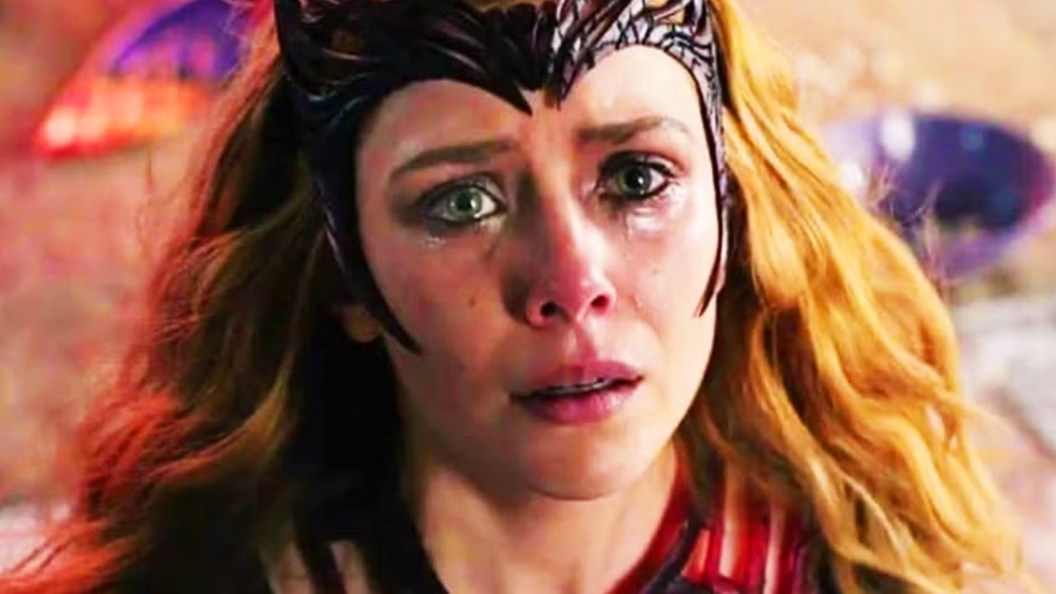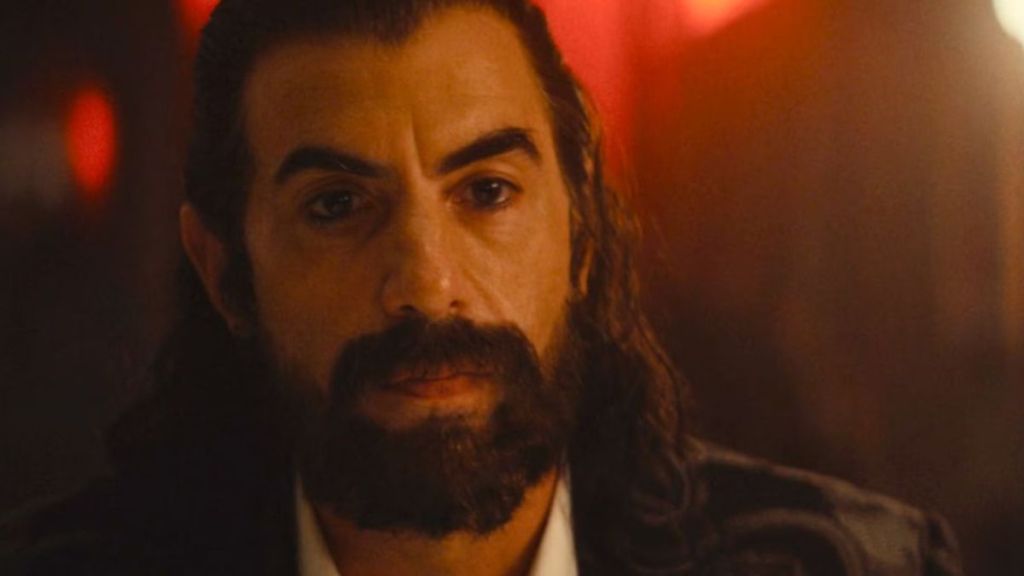
Across her MCU appearances, and culminating in WandaVision and Doctor Strange in the Multiverse of Madness, Wanda Maximoff’s journey has been one of grief, love, and growing cosmic horror. The traumatized introduced properly in Avengers: Age of Ultron became as a grieving lover, and a wannabe mother who just wants her dream life back. Unfortunately, that desire became so all-consuming it first reshaped reality, warped morality, and ended in a tragedy that threatened the fabric of existence. Her arc moved from hero to villain with a kind of grim inevitability, made all the more disturbing because she’s still mostly recognisably human. Her story remains one of the biggest tragedies of the MCU.
Intriguingly, Marvel chose to frame her turn as if there were no other, better way, the same way Tony Stark’s grim fate was inevitable. In The Multiverse of Madness, Wanda learned about the multiverse through the Darkhold, and was quickly positioned as the antagonist, hunting America Chavez to steal her powers, killing versions of herself and others across dimensions. The point – rather inelegantly expressed – was that she would have done anything to get what she wanted. And now, Ironheart, of all shows, has quietly and rather unintentionally cracked Wanda’s trauma open a little wider, and made her fall seem a lot more tragic. Obviously, SPOILERS for Ironheart‘s finale follow.
Mephisto’s Appearance Underlines MCU’s Scarlet Witch Cruelty

By the final episode of Ironheart, Mephisto finally arrives, fully formed, and played devilishly well by Sacha Baron Cohen. Having revealed himself as the architect of The Hood’s corruption, he offers Riri Williams a deal: her friend Natalie, dead since before the events of Black Panther: Wakanda Forever, could be brought back to life in exchange for Riri’s soul. It’s a classic Faustian bargain, but the fact that it works is what matters here. Ironheart confirms that resurrection through supernatural means is not only possible but framed as a legitimate option, and in effect retroactively rewrites everything WandaVision and Multiverse of Madness said about Wanda’s limits.
Because if Mephisto is out there, why wasn’t he an option for Wanda? And that’s not just a casual omission: Wanda studies the Darkhold, for its deepest, darkest secrets – she’s willing to risk its power for the reward of its knowledge. The idea that Mephisto didn’t come up before she got to that point seems… illogical. Especially because Mephisto’s whole trickster deal would have fit Wanda’s story perfectly, and it’s not like he’s unknown to witches, as the namecheck in Agatha All Along proved. If he preys on those he believes can be manipulated because of their desires or ambitions, Wanda was the perfect client. No matter the cost, she would have paid it. She already sacrificed everything. If she was willing to tear the multiverse apart, why wouldn’t she offer her soul?
In the comics, Mephisto is deeply tied to Wanda’s story. Her children, Billy and Tommy, were born from shards of his own soul, in a still-devastating twist. He eventually reabsorbs them, which shatters Wanda’s mind and sets the stage for House of M. So when WandaVision aired, fans expected him to show up. What felt like millions of words of theory and speculation spontaneously exploded into being. The Hex, the children’s strange creation, the illusions and disappearances… they all felt like a setup for Mephisto. But he never appeared.
Now, in light of Ironheart‘s ending, it feels like she was denied the one narrative escape hatch that might have saved her from the villainy forced on her by the MCU’s creative teams. It would have been far greater a story had Wanda been allowed to choose damnation as her sacrifice. Rather than being pushed into it by bad writing or narrative oversight. And Mephisto’s appearance long after she needed his very specific set of skills just feels like cruel irony.
All episodes of Ironheart are available on Disney+ now.
The post The MCU Makes Scarlet Witch’s Story Even More Tragic 3 Years After Her Death appeared first on ComicBook.com.


